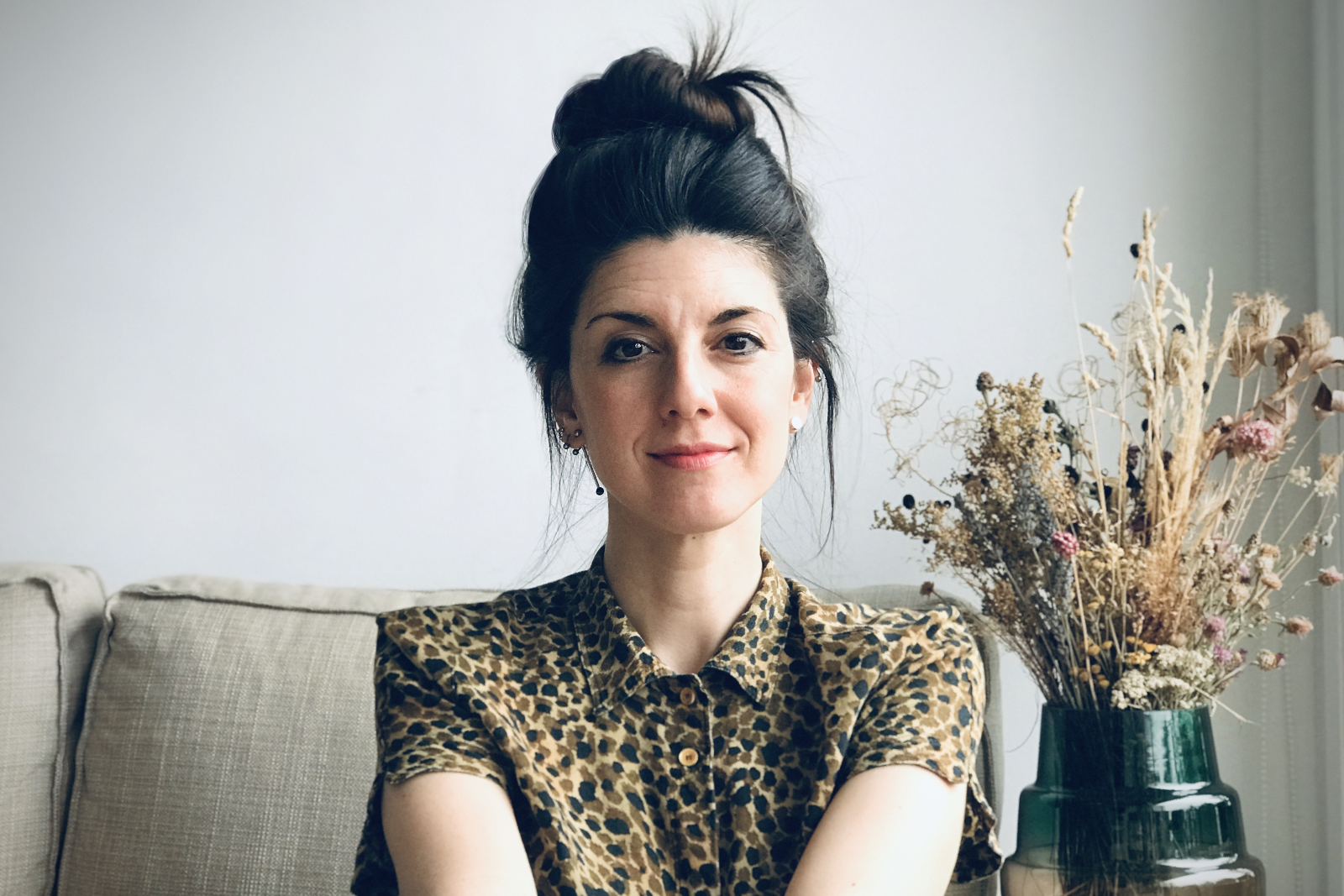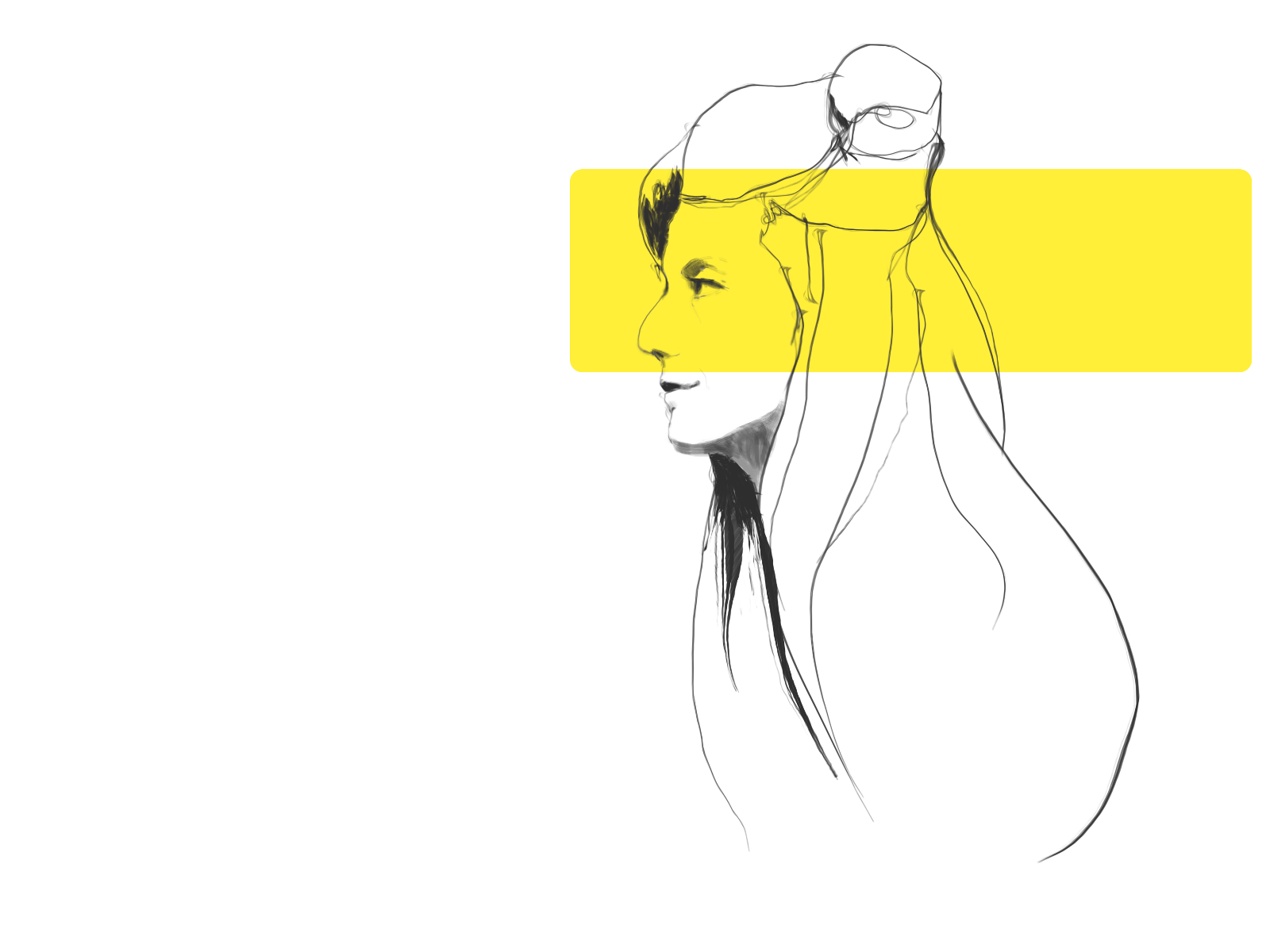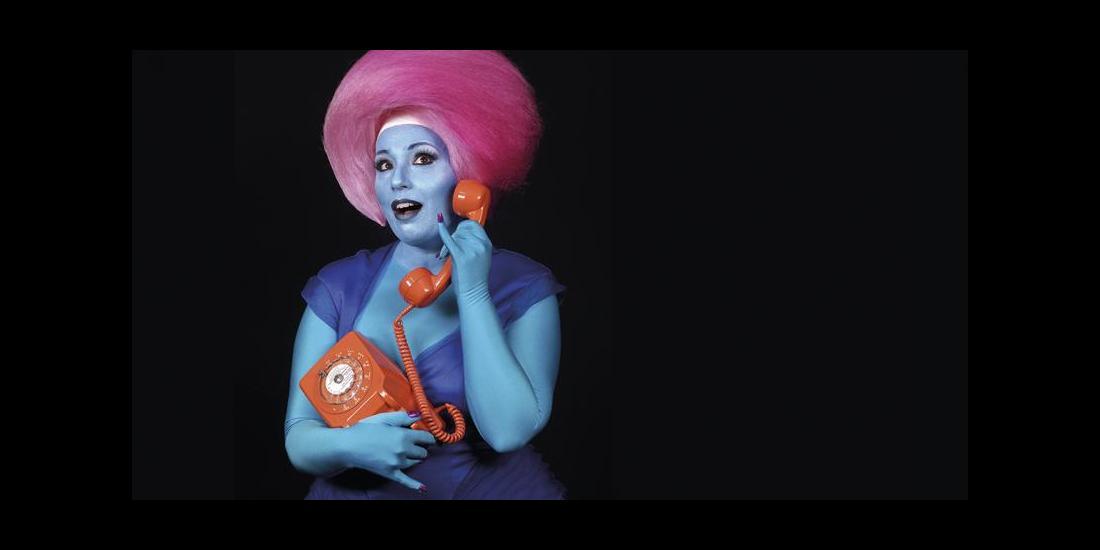Barcelona native Raquel García-Tomás (1984) is one of the best-known creators in contemporary Catalan music. Having trained at ESMUC (Catalonia College of Music) and earned a doctorate from the Royal College of Music in London, she has now won the Spanish National Music Prize for Je suis narcissiste, an opera buffa that ‘connects with the audience without abandoning experimentation’, according to the jury. Her latest composition, Per precaució (As a Precaution), is included in Sis Solos Soles (Six Solos Alone), which premièred at the Liceu.
How did you get into music?
Through a series of coincidences. When I was three, my gran got me a Casio keyboard. I don’t come from a musical family, except perhaps for my gran’s sister, who had a feel for music and taught herself to play the violin. That keyboard came with me everywhere when I was little, and I thought ‘I’d like to be able to play the piano’. But there were no music schools in my neighbourhood, and I didn’t know anyone who played it.
Where did you live at that time?
In the El Maresme neighbourhood, long before the Fòrum was built. It was a dormitory suburb full of council flats. There weren’t many facilities there, so I made do with the Casio. Until one day, the music teacher at my school, Lys Vilà, opened a kind of extracurricular music centre, which offered official elementary music courses. I started to study music at the age of ten. It was Lys who encouraged my parents to buy me a piano. They weren’t sure; it was a lot of money, and they saw it as another piece of junk in the house. But Lys kept spurring them on. When I finished the elementary course, she told me to go to the Municipal Conservatory of Barcelona for entrance exams. And that’s how it all started. I got on with things there, finished the intermediate course and did the higher course entrance exams at ESMUC. And later, I did my doctorate at the Royal College of Music in London.
When did you know you wanted to be a composer?
Before deciding I wanted to get into music professionally, I started a degree in fine arts. I really liked both. My instrument was the piano, I liked composing, but I also had a soft spot for the visual arts. You can imagine me there, at 19, trying to choose. It was during my first year studying fine arts that I decided on music. I was good at the theory side at that time, and I was feeling confident in my piano playing. The fine arts subjects I was doing wouldn’t count at the Conservatory, so I left university to practise piano. I put a lot of pressure on myself and ended up with tendinitis, so it took me two years to do the sixth year of the intermediate course.
It was a key moment, and it was tough: you weren’t at university, and you couldn’t play.
I went back to playing again, but it was never the same. I was traumatised; I saw it as a failure. I did the piano and composition entrance exams at ESMUC, and I didn’t want to choose between the two. I didn’t get in for piano. I had a lot of fears and insecurities, brought on by the tendinitis. But I did get in for composition. The idea was to do a year and see how it went. Once I was there, I realised the pianists had a different profile to me. They were ultra-prepared and had a different way of being and of relating to music. So, I saw that maybe the right path for me was indeed composition. From the moment I got into ESMUC onwards, I liked composing but I did struggle with some internal conflict. Was my piano career over? I kept going, but I didn’t feel the same sense of connection when I was composing music as I did when I was playing the piano or painting on the fine arts course.
How did you resolve this conflict?
When I finished my second year at the Conservatory, I went away for a week, all on my own. I realised I was studying composition because that was the responsible thing to do, but I wasn’t fully committed to it on a personal level.
Why do you think that was?
Because I was scared of failure. I was really committed to the piano and I had failed. I was scared. It’s a lot of hours to dedicate to something, and it’s hard. I didn’t want to dive into something that I didn’t like and that didn’t come with many job prospects. From there, I decided I was going to find a way to feel good about it all.
When did you realise that you had achieved this and that you were a composer?
I’ve gone through phases. The first was with a percussion duet piece, SKODJA. I started to notice a love for composition and a sense of introspection stirring inside me. The second was my final project for my degree: an opera buffa, based on the libretto The Maid Turned Mistress. These two pieces marked the moment I started to feel connected as a creator and like I was on the right track.
On this path, you must have been influenced by certain composers or pieces. Which?
There are so many! In my first year at ESMUC, I discovered new music – twentieth-century music – which I didn’t quite understand at the time. I have a vivid memory of a class with Bernat Vivancos. He put on a piece by a Norwegian composer, Lasse Thoresen, Illuminations, double concerto for two celli and orchestra, and it really caught my attention. And we got to meet the composer. That was very important for me.
In this article, composer Joan Magrané defined you as a ‘unclassifiable creator committed to multi-disciplinarity, especially in terms of image/music, and [who] excels in writing music for the stage’. How would you define yourself?
I like what Joan said. I think it’s true and flattering. I would say that, rather than multi-disciplinarity, I focus more on inter-disciplinarity. But I can’t define the kind of music I make. It’s like when you hear a recording of your voice and you don’t recognise yourself.

Contemporary classical music is often criticised for having abandoned the audience, with pieces that are overly complex for untrained ears. What is your take on this?
I think generalising is a mistake. There are many types of music, and many types of audience. It’s true that contemporary classical music is complex in some ways, unlike what you hear every day. But there are proposals like the Sampler Series at L’Auditori, with a big audience of all kinds of people, that show that this kind of music can be accessible.
In fact, the jury for the Spanish National Music Prize pointed out your ability to ‘connect with the audience without abandoning experimentation’.
Everyone has their own language. All creators are different. There could be more campaigns to publicise contemporary music, to talk about it more. Even today, when I talk about work and say I’m a composer, people look at me funny and ask if that job still exists! For any discourse to be understood, it has to be discussed and normalised. There’s no need for specialist training, but the public should get used to listening to this kind of music more. And facilities should think about booking more new music. Before, people wanted to listen to the music of their time. Now it’s the other way around. Contemporary composers are on the fringes, while the biggest venues and orchestras end up playing music from the past. There’s an imbalance; today’s music needs to become part of a national repertoire. It’s not good enough for us to play our pieces once and that’s it.
The opposite happened with Je suis narcissiste. People talked about it a lot.
It’s leaving its mark on the collective imaginary. This shows that it’s not just about compositional language; it’s also about promotion, about getting people talking about it. That’s what we need. At the end of the day, promoting a piece is a mechanism: you can do it well yourself, but if institutions don’t help you or believe in it, all is lost.
Maybe that’s why you composed an opera buffa. How did you end up making Je suis narcissiste?
By coincidence. This lack of musical influence in my family gets me thinking about more unusual things [she laughs]. It should have been a serious opera, but the librettist and I wanted to talk about narcissism, and what came out was a comedy.
Has contemporary music lost its sense of humour?
No, I don’t think so. Composers have always used and still use humour. When canons are formed, certain trends are favoured. There probably has been a lot of humorous pieces, but they haven’t made it into the ‘official’ canon, so no one talks about them. Simon Steen-Andersen comes to mind, for example.
You have worked with Helena Tornero, the librettist, before, on disPLACE.
In the case of disPLACE, we didn’t know each other, and it was a more traditional collaboration. In fact, the piece was split into two parts: one for me and the other for Joan Magrané. For Je suis narcissiste, we had a lot of meetings about the theme and different anecdotes, and she sent me the text when she had it ready. I had a less conventional collaboration with the theatre director, Marta Pazos. When we had the libretto, we were designing things together before I even started doing the music. Together, we imagined how the film would go. We spoke every day, I sent her things, always with total freedom. It was a two-way collaboration, in this sense.
It seems like you concentrate more on emotions than on more cerebral aspects.
I thought that too, but my friends tell me I’m very cerebral [she laughs]. I think both things are true. It’s a combination of the two sides of the brain. I understand the potential of emotion, for contrasting sensitivities and knowing what you want to provoke in the audience during a scene. But logic and the more cerebral aspect also play a part.
Per precaució is on at the Liceu at the moment, and it talks about a very current topic: elderly people and care homes.
Per precaució is a monodrama (or micro-opera) with a text by Victoria Szpunberg, who has been writing several pieces about elderly people lately, for personal reasons. Dolors Aldea agreed to play the role and she’s been perfect. We’ve been able to have an older woman telling the story of an older woman. It’s very authentic and powerful. The story is about an elderly woman who finds out she’s being taken to a care home. And she expresses her resistance, her peaceful empowerment, forcefully and critically. But she keeps a cool head, as older people usually do.
The connection with the pandemic and the lockdown is undeniable.
The text was written before the pandemic. I received it on the day my gran went into a care home, in January. But I started to compose during the lockdown. And it shows. I spent a lot of time on my own. Work slowed right down. In some ways, I felt like the protagonist: I felt good at home, closed off. I felt this sense of ‘leave me alone’. I really connected with the piece and the text. It’s been a beautiful, intense journey, because I was very aware of what was happening in care homes throughout.










